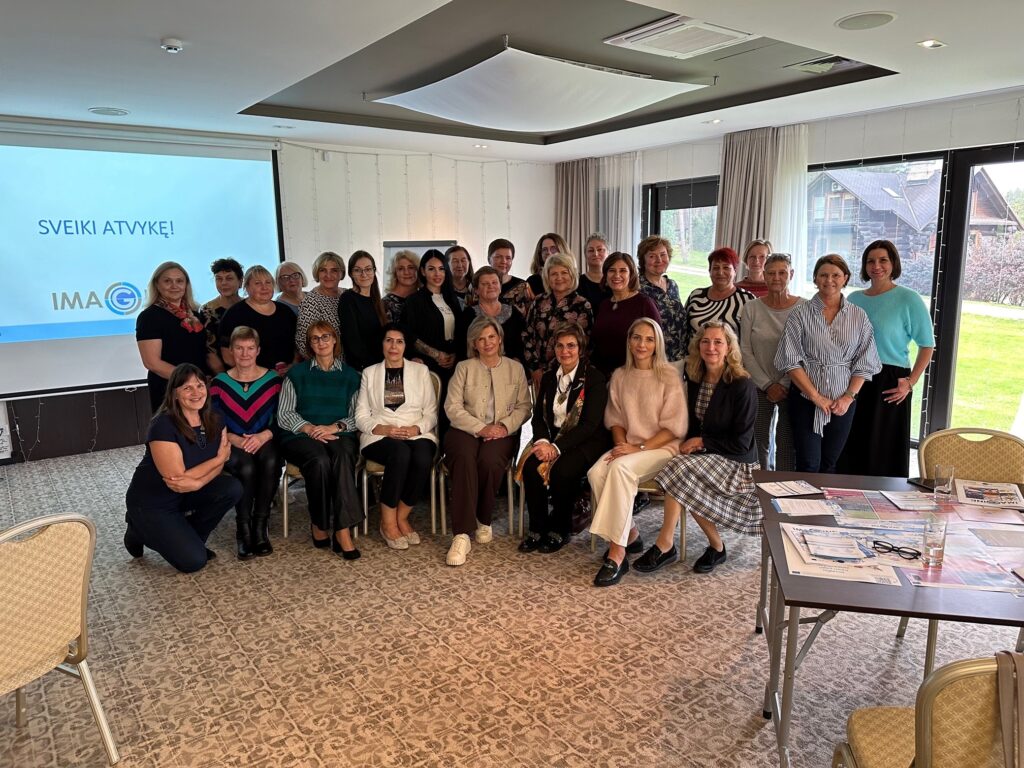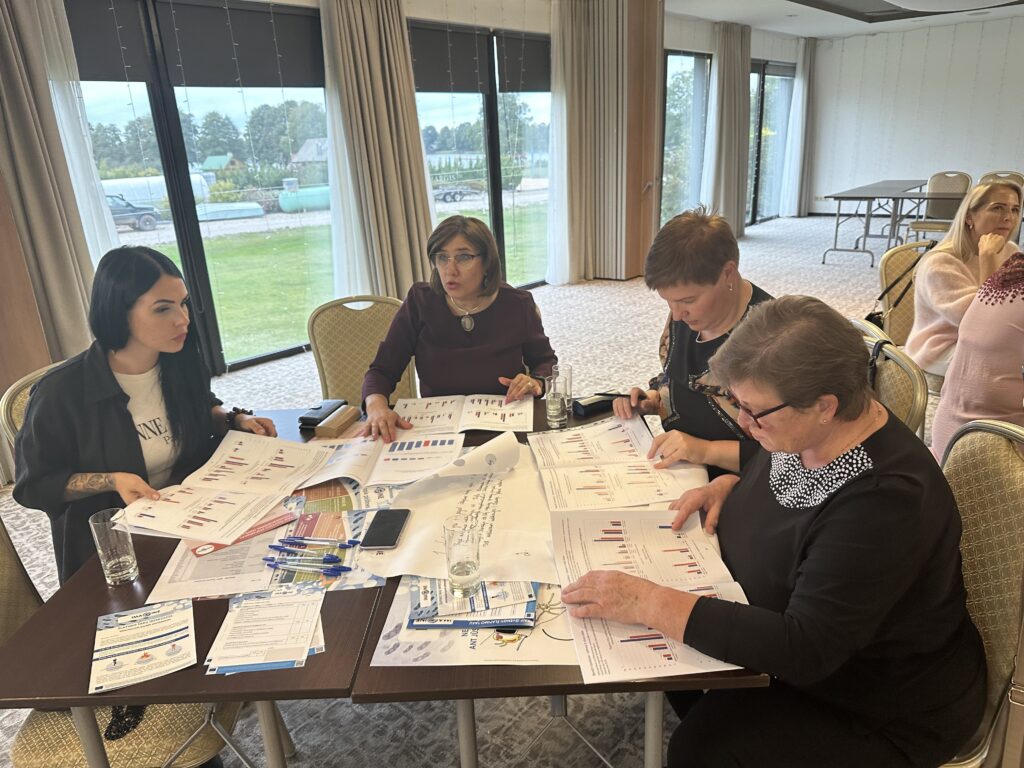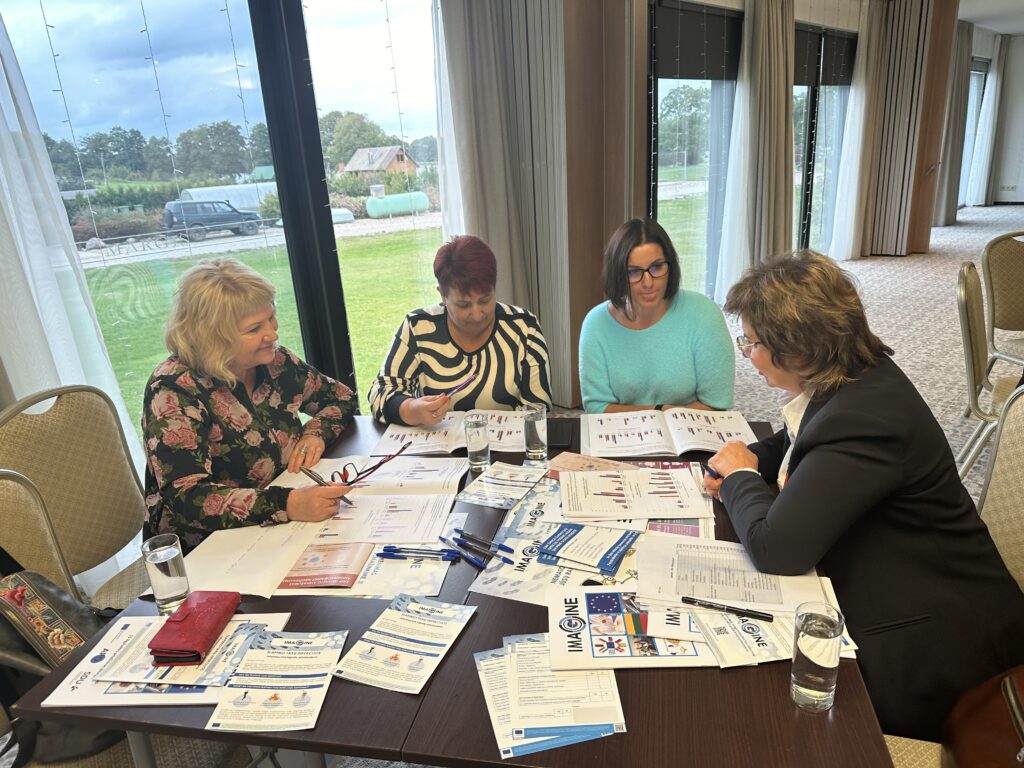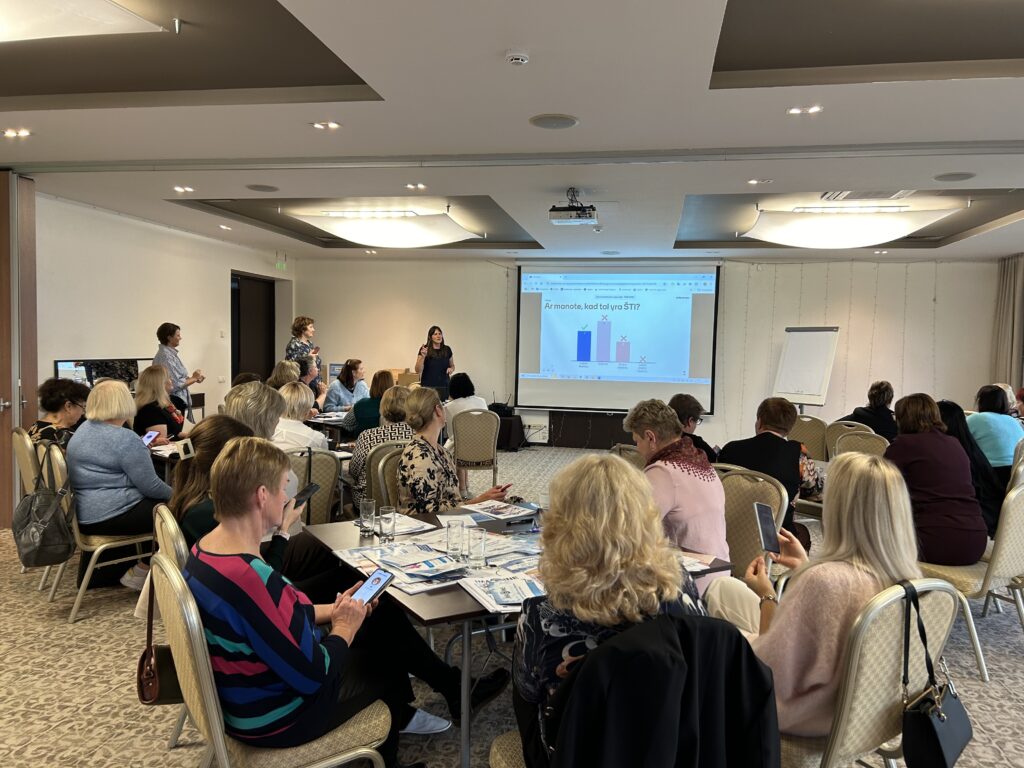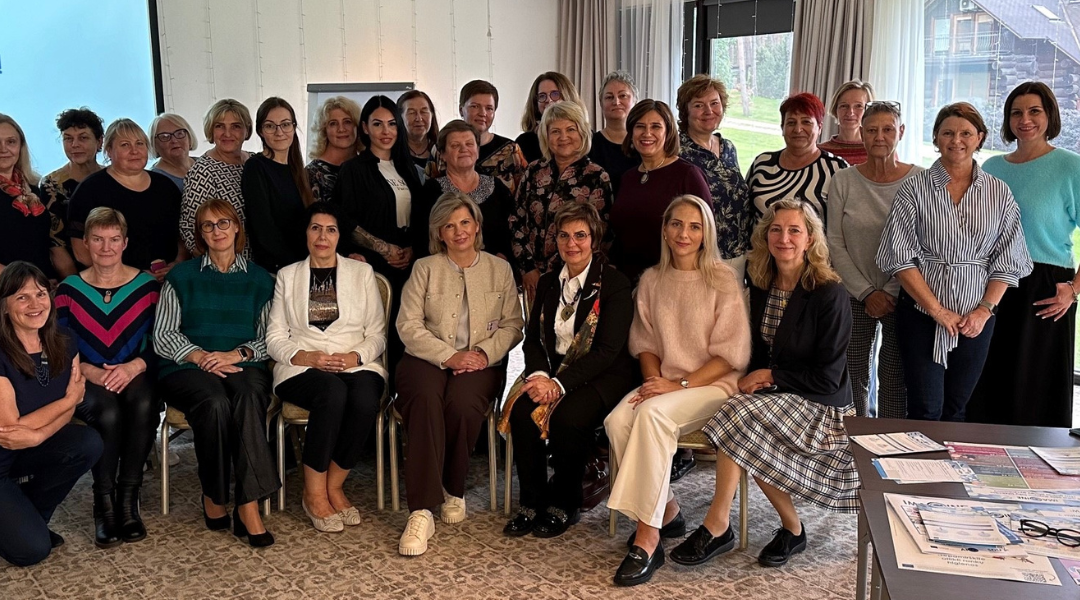As part of the IMAGINE Project’s commitment to reducing antimicrobial resistance (AMR) and enhancing infection control practices in nursing homes, we are thrilled to launch the second intervention workshops in Lithuania on October 10th-11th. These sessions will engage healthcare professionals (HCPs) from nursing homes across the country, focusing on equipping them with the skills and knowledge necessary to improve infection prevention and control (IPC) practices, particularly in addressing common infections such as urinary tract infections (UTIs).
In this intervention, organized by country coordinator – primary care center “Mano seimos gydytojas” (My family doctor) , healthcare professionals will engage in targeted workshops aimed at improving antibiotic stewardship and reducing infection risks.
Workshop Overview and Objectives
The two-day intervention in Lithuania will bring together HCPs from at least sixteent nursing homes to participate in a structured and interactive workshop. This initiative aims to foster an environment of collaboration and learning, where participants can reflect on current practices and explore strategies for improvement. The focus will be on discussing the results of the first audit, which was conducted as part of the IMAGINE
Project’s comprehensive before-and-after study and strategies for improvement.
During these sessions, HCPs will:
- Review audit findings to assess current infection control measures and antibiotic prescribing trends. This feedback will provide insights into existing practices and help pinpoint areas for targeted improvements.
- Set actionable goals based on the audit data, expert recommendations, and the latest EU AMR Guidelines, aimed at enhancing IPC protocols and optimizing antibiotic use.
- Engage in expert-led training on best practices for diagnosing and managing UTIs, as well as implementing effective infection prevention techniques.
- Access educational resources on IPC and AMS, which will be shared not only with HCPs but also with residents and their families, to promote a broader understanding of infection prevention within the nursing home community.
The Audit Project Odense Method: A Proven Approach
IMAGINE utilizes the Audit Project Odense (APO) method, a structured approach that enables nursing homes to systematically evaluate and improve their practices. This method includes a three-month initial audit phase, where HCPs actively monitor and record data on UTIs and IPC measures within their facilities. The APO method supports a detailed, data-driven assessment that serves as the foundation for the interventions.
Following the workshops, a second audit will be conducted to measure the impact of these interventions analyzing the outcomes and determining areas where further support may be needed.
Why Lithuania’s Nursing Homes Matter in the Fight Against AMR
Nursing homes play a critical role in the health and well-being of some of the most vulnerable members of society. Residents in these facilities often face a heightened risk of infections, and the misuse of antibiotics can lead to the development of AMR, posing significant health risks. By focusing on IPC and AMS, the IMAGINE Project aims to implement lasting changes in the management of infections, not only reducing the burden of AMR but also improving the quality of care for nursing home residents.
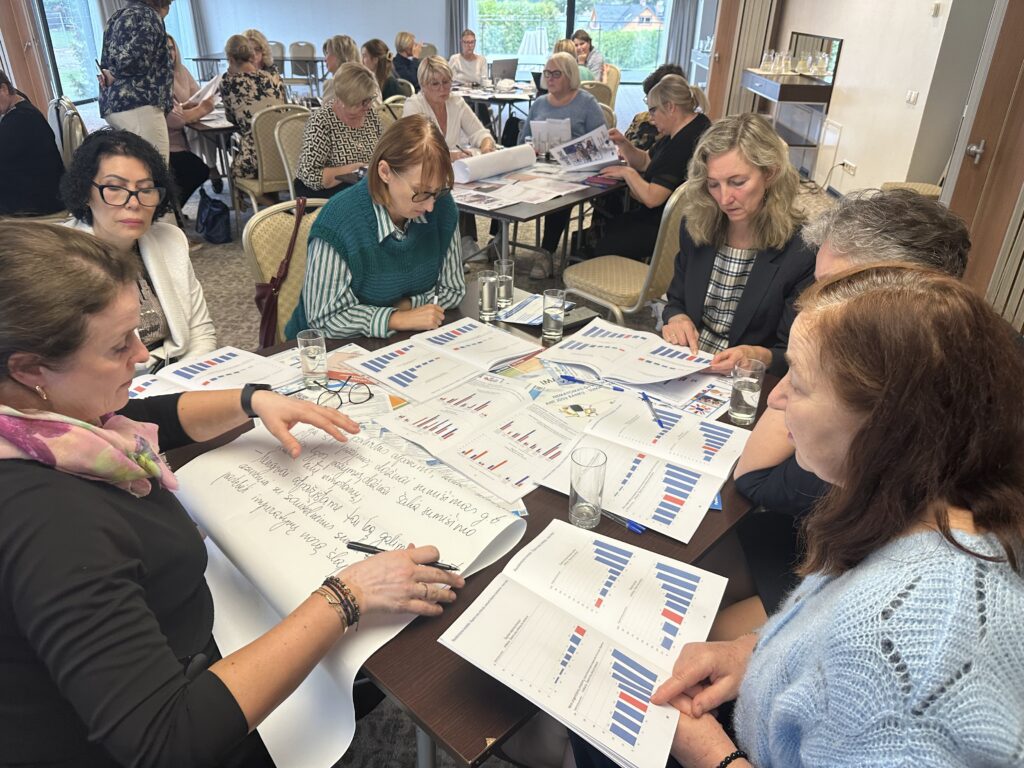
What Comes Next?
The intervention workshops in Lithuania mark an important step forward in the IMAGINE Project’s broader efforts across Europe. Following Lithuania, interventions will continue in the other participating countries—Greece, Hungary, Slovakia, Slovenia, Spain, and Denmark—over the coming months. Each workshop will provide valuable data and feedback, helping to refine our methods and scale our approach.
The IMAGINE Project has scheduled its next intervention in Hungary on October 15th as part of our ongoing commitment to reduce antimicrobial resistance (AMR) and enhance infection prevention practices in nursing homes.
Here are some images of how the sessions were in Lithuania.

